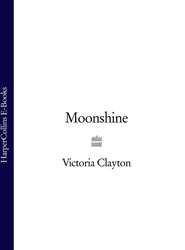По всем вопросам обращайтесь на: info@litportal.ru
(©) 2003-2024.
✖
Clouds among the Stars
Автор
Год написания книги
2018
Настройки чтения
Размер шрифта
Высота строк
Поля
I was touched by this instance of thoughtfulness in one so young. It seemed a good example to imitate. I began to cast about in my mind for something I could do to console the weary prisoner. I wondered if he would be allowed music. I could take along my portable gramophone and some of his favourite records. Prison furniture was probably uncomfortable. Perhaps they wouldn’t mind a very small bergère armchair. The piece of Brussels tapestry that hung on the stairs would conceal ugly paint or wallpaper. I began to form a picture of quite a cosy cell with pictures and books and a few pieces of his favourite Vincennes porcelain.
It occurred to me that someone ought to inform Cordelia’s headmistress that she would not be coming to school. My mother’s voice, issuing from the receiver as I lifted it, said sharply, ‘I am trying to have a private conversation. Whoever that is, put it down at once.’ I was disappointed. I had assumed the telephone’s silence was because the reporters had given up using it as a medium to contact us. It shows how naîve I still was.
When I wandered down again an hour later, having refreshed myself with a bath and a few lines of Gerard Manley Hopkins, I was surprised to find Max Frensham in the drawing room. Max was a member of the cast of King Lear and a friend of my parents’.
‘Harriet!’ He came towards me and took my hand in both of his. ‘I had to come and see you were all right. How is Waldo bearing up?’
‘How did you get in?’
‘Through the back door. I expect you’ve forgotten, but last year at your mother’s birthday party, you let me in on the secret of the maze.’
I remembered that Max and I had spent half an hour last summer exploring its intricacies and I had told him Loveday’s masterplan. Caroline Frensham, Max’s wife, had been waspish when we re-emerged and had devoted the rest of the afternoon to flirting with my father. She was good-looking, if one overlooked the blankness in her eyes. In fact the Frenshams were considered a handsome couple and were much in demand socially. Max was auburn-haired with a pale, ascetic face, in which hazel eyes burned, and one of those thin, finely modelled noses with a slight dent at the tip. He had considerable charm. Being Edgar to Basil’s Lear was the high point of his career so far but he was only thirty-four and great things were foretold.
‘It is good of you to come.’
‘This is so terrible for you. Of course he didn’t do it. Waldo would be the last person on earth to hurt anyone. He is quite simply, and without any qualification, my hero. He can act anyone else off the stage. Certainly poor old Basil. But you mustn’t worry. The police have made a stupid mistake. We’ll all testify to the fact that Waldo is incapable of murder.’ This was like a lungful of oxygen to one who had been breathing thin, foetid air. I was ready to tell anyone who would listen that my father was innocent, but to hear someone else say it was balm to the soreness of my heart. ‘Poor Harriet, you must be having a wretched time of it.’
‘Max! Dear boy!’ My mother glided towards us across the drawing room carpet, her lilac peignoir fluttering like a sail head to wind, one arm held out before her like a bowsprit. ‘You find us supping full with horrors! Harriet,’ she added, in her ordinary voice, ‘ask Maria-Alba to bring us some coffee.’ She shook out a fan. ‘Time has been my senses would have cooled to hear a night-shriek.’ She fluttered her hand. ‘And, darling, some of those delicious little almond biscuits.’
‘What do you think?’ Bron was up unusually early. It was not yet eleven o’clock. He was looking soigné in his best suit with a blue silk shirt and a scarlet tie. He twirled on the spot. ‘Elegant or what?’
‘Elegant,’ I said, though Maria-Alba and Cordelia said ‘what’ in unison. After all it would do no good if we allowed ourselves to marcher à la ruine. This was one of my mother’s most damning phrases and applied to anyone who had allowed a centimetre of fat to accrete to their hips or the tiniest wrinkle to quilt their cheek. ‘Are you going out?’
‘My press conference.’
‘What are you going to tell them?’
‘I shall point out how few decent parts there are for good-looking young classical actors. Rudolf Rumpole is playing Romeo at the Tivoli and he’s nearly forty. What chance is there for the rest of us? I’d like to know.’
‘I meant, what are you going to tell them about Pa?’
‘Oh, I don’t know. Something will occur to me.’ He waved his hand in a lordly way. ‘Is there something to eat? I don’t want to look pale.’
Maria-Alba, Cordelia and I had breakfast together in the dining room, with the curtains drawn against the photographers, who were back, jostling for place like thirsty buffaloes round a water hole. I lifted a corner of the curtain and counted sixteen of them milling about among the clipped box and bay trees in the front garden. Probably this was trespass but ordinary citizens’ rights no longer seemed to belong to us. One reporter sat on a gate pier, his legs either side of the stone ball and another shinned up the lamppost to get a bedroom shot. One of them spotted me and immediately they were shouting and pointing cameras. Cordelia turned to look at me in surprise as I dropped to the floor, my heart beating fast. Her huge blue eyes, in a face as yet unmarked by weal or woe, looked angelic. Supposing this terrible experience had a permanent affect on her happiness?
‘This is silly.’ I got up and tried to laugh. ‘Like being besieged in a Royalist stronghold during the Civil War. With hordes of Roundheads camping beyond the barbican.’
‘We wouldn’t hold out for long with only Bron to do the fighting.’ Cordelia cracked the top of her egg with a spoon.
‘Women fought too, even in those days. At least they helped with dropping boiling oil and quicklime on the enemy’s heads. Though sometimes the sieges went on for months or even years with nothing much happening. The worst thing must have been running out of food and having to eat dogs and cats and candles and soap and things.’
‘I’d rather starve to death than eat Mark Antony.’ Cordelia punctured the yolk of her boiled egg with a toast soldier. We were drinking hot chocolate with whipped cream. Maria-Alba’s instinctive response to any crisis was to try to fatten us up. ‘Think of his dear little whiskery face poking out of a pie.’
‘How stupid it all seems now, looking back,’ I said, in a vain attempt to turn our thoughts from our own difficulties. ‘All those young men killed in battle and then poor King Charles having his head chopped off. He put on an extra shirt so he wouldn’t shiver. He didn’t want people to think he was afraid – it was so unfair.’ I paused, remembering Pa, and felt a twist of pain in my stomach. It was odd how one managed to forget for nearly a minute at a time and then memory would come lurching back, to terrorize.
‘How’s he going to go to the lav?’ asked Cordelia anxiously. I realized she meant Mark Anthony not Charles II. ‘You know how he hates doing it if anyone’s looking.’ A fastidious propriety in such matters was one of Mark Antony’s good points.
‘He’ll have to nip into the maze when no one’s looking. What’s that?’
‘It is the front door. Some man is got in.’ Maria-Alba stood up and seized the poker from the fireplace. I ran to get ahead of her. Leaning against the front door, his coat disarranged, the carnation in his buttonhole crushed and his toupee crooked, was Ronald Mason.
‘Harriet, my dear girl! I hope I didn’t alarm you,’ His voice, once a mellow baritone, had the graveliness of a long-term smoker. ‘I remembered where you keep the spare key.’ He held it out to me. ‘You’d better have it indoors for now.’
Ronald Mason had been a heart-throb of the silver screen during the thirties and forties when he was hardly ever out of slashed doublets and diamond-buckled knee-breeches. His characters’ speeches were punctuated by antique expressions such as ‘’pon rep’ and ‘i’faith’ and ‘have at thee, varlet’. When he saw Maria-Alba holding the poker his protuberant eyes and small girlish mouth grew round with dismay. ‘Sono io, Maria-Alba,’ he cried with pure Oxford vowels. ‘Il tuo anziano amico – Ronnie.’
‘Anziano, vero,’ said Maria-Alba with uncharacteristic brutality, but she put down the poker.
‘Ronnie! How good of you to come!’ I kissed his wrinkled cheek, which smelled of lavender water. ‘But you look a little … Have they hurt you?’
‘No, no.’ Ronald panted as he straightened his toupee. ‘Bron coming out distracted them. Had to come. Clarissa asked me. Couldn’t let her down.’ His eyes were watering with the cold, and perhaps with emotion, for he clutched my arm and added, ‘This is a ghastly business. Poor Waldo. I’ve never been more upset.’
I felt ashamed of all the times Portia and I had made fun of Ronnie behind his back, imitating his mincing walk and his mannered laugh and stagey speech. He had been my mother’s lover years ago and had remained worshipping at the shrine despite being replaced by a stream of younger actors. It struck me for the first time that these suitors were conspicuous by their absence. Where was Jeremy Northampton, her current cicisbeo? Recently he had been in the habit of dropping in almost daily. And where were those other friends who had so often gathered round the dining table, making assignations in the drawing room and love in the garden?
The doorbell rang. I peered through the letter box into the eyes of an unknown youth.
‘Perdi’a’s Pe’als. I go’a lo’a flahs fer yew.’
‘What?’ Then I remembered that Perdita’s Petals was our local flower shop. ‘Oh. Yes, wait a minute. Maria-Alba, stand by with the poker. I’m going to open the door.’
I tried to ignore the yelling that broke out the minute I put out my head. Lenses were thrust into my face as the press shouted questions about my father’s guilt, his reaction to prison life, and was it true that my father had been staying with Princess Margaret on Mustique?
Luckily the delivery boy was fiercely voluable. ‘’Ere! Don’ you go pushing me, ma’ey. ’Ere!’ He was inflamed from indignation to outrage when his hair was rumpled by a fur-covered microphone. ‘Naff orf or I’ll push tha’ fucking thing down yer throa’!’
While he was arguing with them I was able to gather up the bouquets and pass them back into the house to the others. Then I slammed the door, bolted it and put on the chain.
‘Hyenas! Vipers! Wolves!’ Ronald passed a handkerchief across his brow. ‘I am sorry for modern youth. They are uncultured yobs, wallowing in ignorance. Their understanding is superficial and their tastes are banal.’
‘Come and have some coffee.’ I guessed his pride had been hurt by one of the reporters asking if Ronald was my grandfather.
‘Thank you, Harriet, but I have a cab waiting.’ He bowed his head. ‘I except you and your dear sisters, of course, from the general censure.’
‘What we do with these flowers?’ asked Maria-Alba. ‘I use every vase yesterday.’
Cordelia read one of the notes accompanying what the woman in Perdita’s Petals would probably have called ‘floral tributes’. ‘“Darling Clarissa. You must be going through hell!!! It’s too maddening our having to go away just now. Our thoughts are with you. Binny and Oscar, with our love.”’
Binny and Oscar had been friends of my parents for years. When Oscar had temporarily left Binny for a double-jointed Olympic sprinter, as black as ink and with hair like a thunder cloud, Binny had found consolation in eating Maria-Alba’s food, gossiping with my mother and, I was almost certain, sleeping with my father. Certainly when Oscar had turned up at our house several weeks later with dark circles under his eyes and a slipped disc, there had been some difficulty in getting Binny to go home with him. She had declared that my father was twenty times the man Oscar was and then this was certainly true. Now it seemed all this was forgotten.
‘I don’t like the house looking like a wake,’ I said. ‘Oh no, someone’s actually sent a wreath!’ I looked at the label. It said, ‘Darling Clarissa from Jeremy. I shall never forget.’ ‘How horrible! They all believe he did it! We’ll give them to Loveday for the compost heap.’
‘Think of the cost of those orchids!’ moaned Ronald.
We often joked among ourselves about Ronald’s little economies. He never entertained but was always the first to arrive at a party and the last to leave. More than once he had been seen pocketing the remaining canapés and sometimes a bottle of wine or whisky. And always after Ronnie’s visits the soap disappeared from the downstairs lav. Once even the towel. My parents were amused rather than irritated by these lapses. Ronnie still occasionally appeared in films, in cameo roles, and probably earned enough to live on, but these days his fees were as crumbs to the cake he had once commanded. Advancing age made him fearful of poverty and as my father charitably said, who could blame him?
‘What difference does it make?’ I said, with reference to the flowers. ‘They’ll be dead in a week anyway.’ I tried to sound careless. I was disappointed that, with the exception of Ronnie and Max Frensham, my parents’ friends had found it easier to dial the number of the nearest florist rather than come themselves to offer sympathy. But perhaps they were giving us time to adjust.
‘If you’re quite sure you don’t want them …’ Ronald replaced his spoiled carnation with an orchid and rearranged his hair and clothing in the hall mirror. He looked critically at his reflection. I could see that his velvet-collared coat, which must have been expensive long ago, was worn at the lapels and he was no longer able to fasten it across his stomach. He looked rather longingly at the clothes brush before putting it back into the drawer of the console table.
‘There you are, Ronald.’ My mother was coming downstairs, wearing her leopard coat and a pair of tinted spectacles. She was carrying a suitcase. ‘I was beginning to wonder what had happened to you. A traffic accident or – something.’ She made it sound a matter of supreme indifference.







